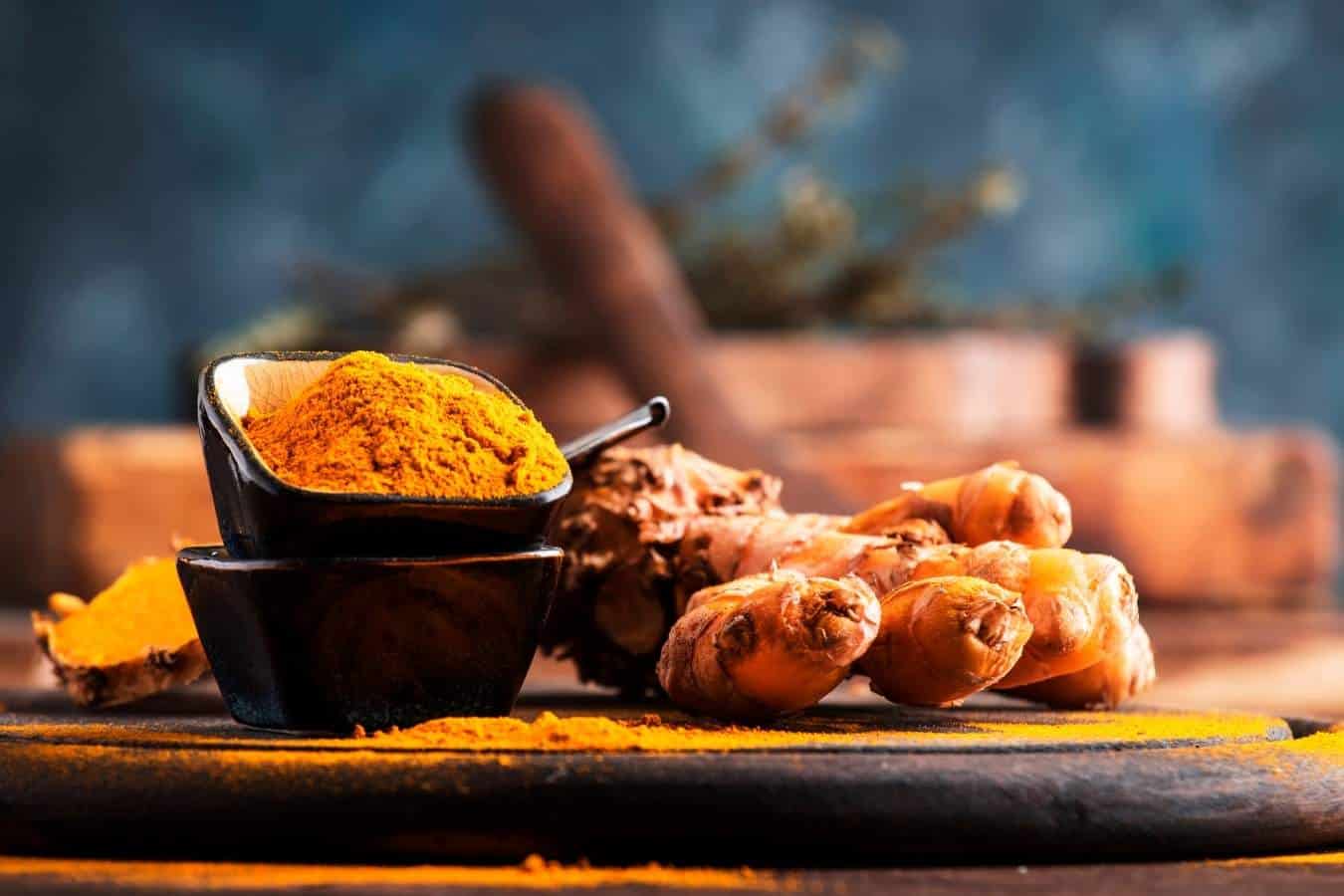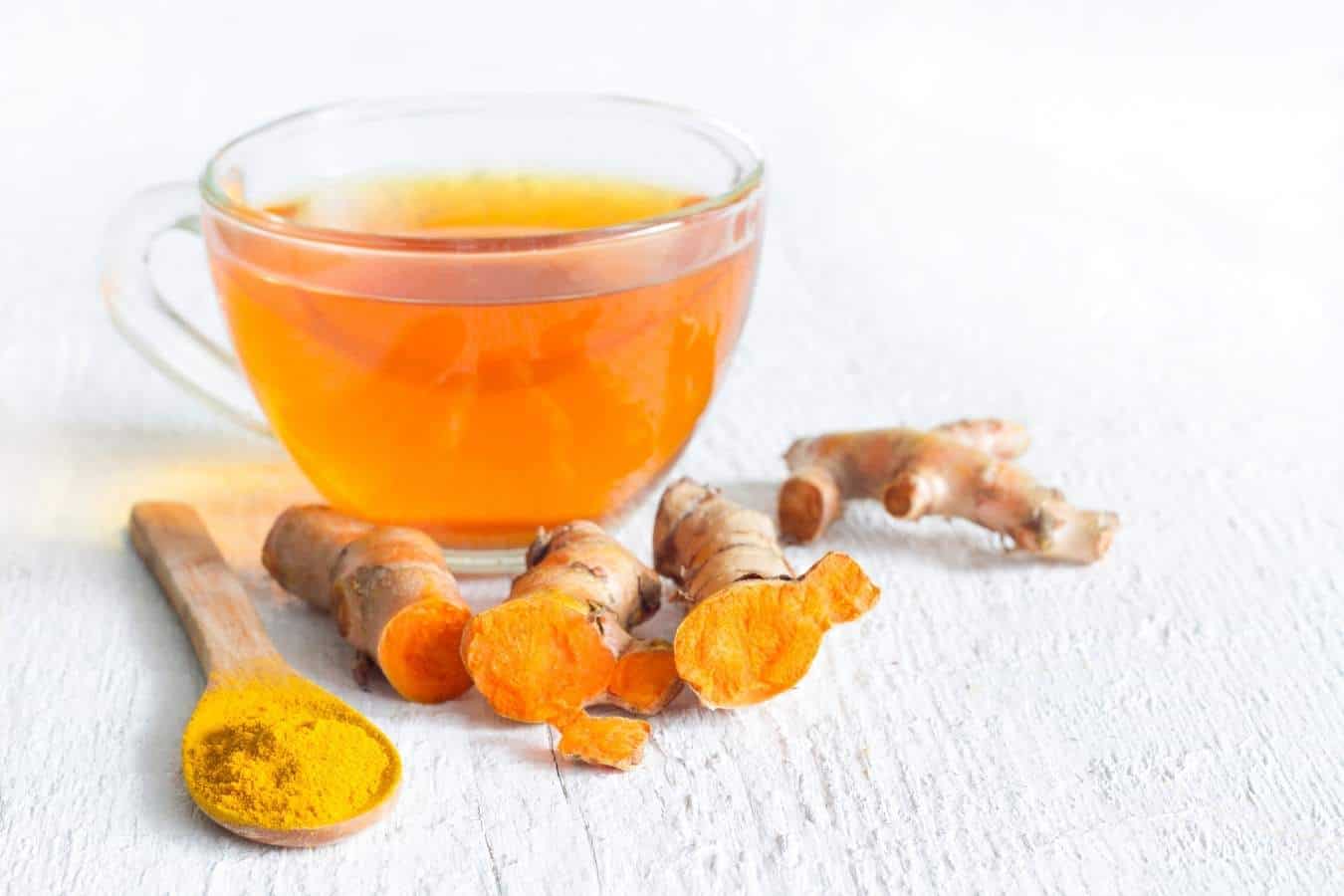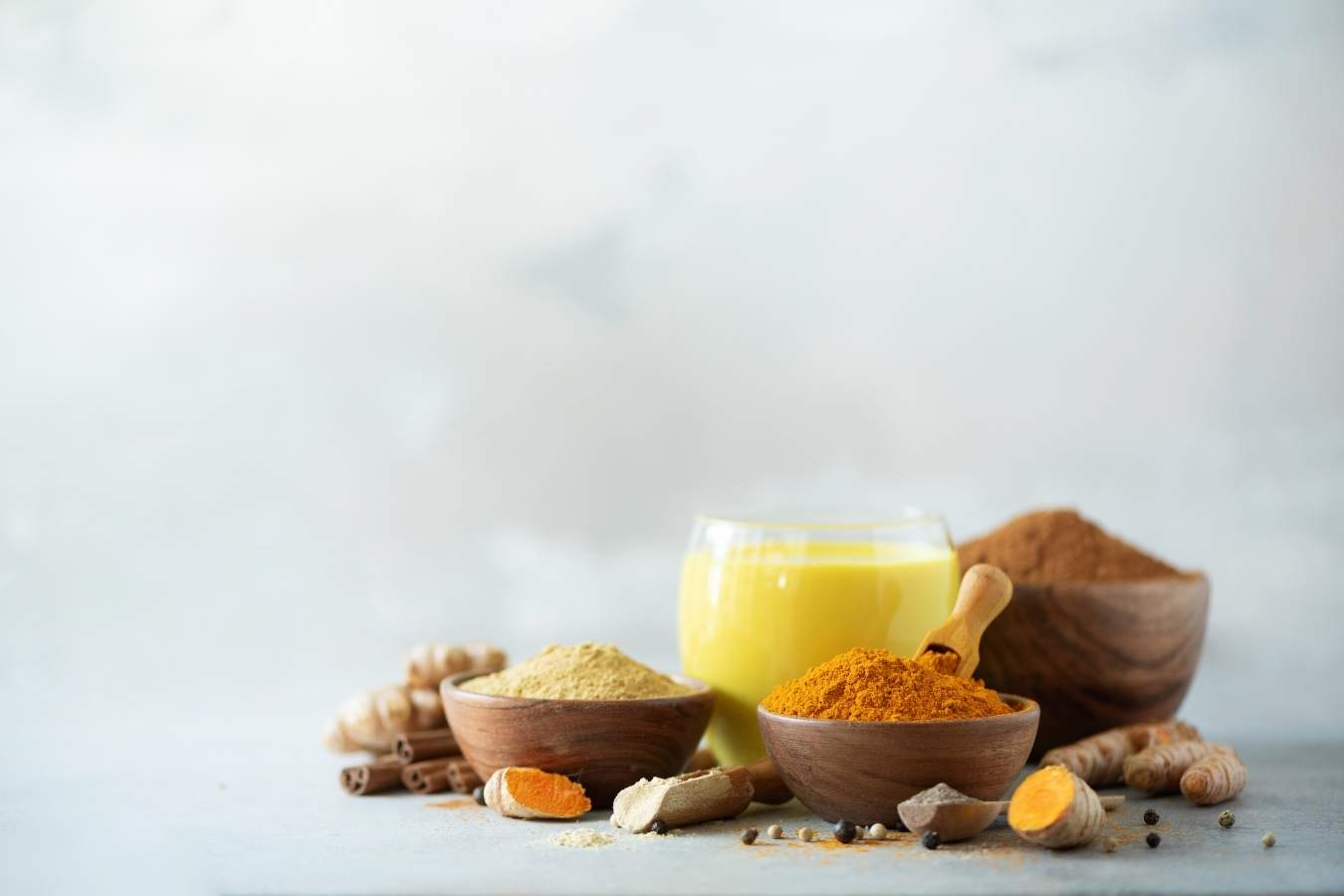Turmeric has many scientifically proven health benefits, but is it good for hair growth? In this article, we will explain what turmeric is and how to use it for natural hair.

What Is Turmeric?
Turmeric is a spice that originates from the Curcuma longa plant and is typically used in cooking.
It’s bright yellow in color and is frequently added to curry powder.
While we know of turmeric as an ingredient in dishes, it was originally used as a medicine, due to its anti-inflammatory properties.
When consumed orally, turmeric can help to reduce inflammation in the body, so it can be helpful when treating heart disease, type 2 diabetes, and other chronic illnesses.
Turmeric can help to support the immune system, leading to fewer allergies and colds.
Is Turmeric Good For Hair Growth?

Turmeric is not only good for your health, but it works wonders when used topically on the hair and scalp. Turmeric contains curcumin, which is shown to prevent overproduction of DHT, a hormone that can lead to hair loss. This can lead to thicker, fuller and healthier hair.
This versatile spice contains anti-inflammatory properties that can help to calm and soothe an irritated and inflamed scalp, which can promote hair growth.
Other Benefits Of Turmeric For Hair
Hair growth isn’t the only benefit to using turmeric on your hair, it has many other benefits for all hair types:
Prevents Dandruff
Dandruff has many causes, but the main ones are an oily scalp or a dry scalp.
It can be difficult to tell the two apart seeing as a dry scalp can lead to an overproduction of oil, which gives the impression that your hair has too much moisture.
But in many cases, your scalp is unbalanced. Turmeric is anti-bacterial, which helps to reduce and eliminate yeast and create a healthy balance of oils.
This will lead to a healthier scalp, allowing hair to grow strong and healthy, too.
Protects Against Damage
Turmeric is a powerful antioxidant that can help to fight free radicals from damaging the hair and your overall health.
If you are often exposed to free radicals, it can lead to your hair aging prematurely. To combat this, turmeric neutralizes them, which slows down signs of aging and hair discoloration.
Eliminates Build-Up
The scalp is prone to product build-up, especially if you use many different products on your hair.
Those with oily scalps will also be more prone to build-up, which can lead to an inflamed scalp.
Turmeric’s anti-inflammatory properties help to reduce inflammation on the scalp, which can prevent oil and dirt from clogging the pores.
This is one of the main reasons why turmeric is so beneficial for hair growth.
Improves Overall Condition
Dandruff, build-up, and environmental stressors can all lead to your hair becoming limp, fragile, and dull-looking.
Turmeric helps to combat this by regulating oil production and cleansing the hair and scalp.
By adding it into your hair routine, you will see a noticeable difference in the overall health of your hair.
It might appear stronger, shinier, and you could see hair growth, too.
How To Use Turmeric For Hair

There is more than one way to use turmeric for your hair and thankfully, they are all very effective.
Depending on your needs and your lifestyle, you can find a method that works best for you.
Topical Application
Many people prefer to apply turmeric topically as you will get the direct benefits without having to consume it.
If you are only looking for hair and scalp benefits, then this option will be the best for you.
Instructions:
- To use as a hair mask or deep treatment, simply put equal parts turmeric and oil in a bowl and mix together until there is no powder left. You can use extra virgin olive oil, coconut oil, or another oil of your choice. Experiment to find the best combination for your hair type.
- When the mixture is ready, apply all over your hair and scalp and leave it on for at least 20 minutes. You can put a shower cap over your hair to lock everything in and prevent it from transferring.
- When the time is up, simply wash it out as usual with shampoo and conditioner. You may need to wash your hair twice to remove everything from the hair seeing as turmeric can be staining.
Another option is to use a shampoo that contains turmeric. There are some available to purchase online, but the options are limited.
These products will likely contain smaller amounts of turmeric, so you may not reap the same benefits, which is something to consider.
However, for those worried about the smell or any potential staining of the skin or scalp, shampoo could be a good option.
Take Orally
The recommended dose of turmeric is around 3 grams a day, which is a teaspoon.
To begin with, half a teaspoon would be a good dosage as it’s very potent and could take a while to get used to.
Turmeric has a strong flavor, which some people like, while others don’t. It can be added to dishes, smoothies, or as a hot drink. Some people like to drink it with milk or water.
Supplement
Taking a supplement is a preferred option for people who don’t like the taste.
The recommended dosage for supplements is anywhere between 500 and 2000 mg a day.
This often depends on whether it’s being used to treat a specific condition.
Many people will reap the benefits with a smaller dose. A supplement can help to reduce inflammation in the body, which includes the hair and scalp.
So you could see a difference in the overall condition of your hair and skin while consuming turmeric.
However, some people say that the benefits are far greater when using it topically and not in capsule form, which is something to consider if you want the full benefits.
Who Should Not Use Turmeric For Their Hair?

If you are using turmeric topically, it should be well tolerated by most people.
However, as turmeric is a powerful antioxidant, it can irritate some people’s scalps if they have a scalp condition.
This isn’t a common response, but it can happen.
For this reason, you should start by using only small amounts on the hair and scalp to monitor any reactions. If there is a reaction, you should stop using it immediately.
If you are consuming turmeric instead, you should consult your doctor if you’re taking any blood-thinning medications.
Turmeric is a natural blood-thinner, and this can interact with certain medications, causing an increase in bleeding or bruising.
People with anemia should also consult their doctor before consuming turmeric, as it could affect the body’s absorption of iron.
Disclaimer: This site is not intended to provide professional or medical advice. All of the content on LovedByCurls.com is for informational purposes only. All advice should be followed at your own discretion. Ingredients may change at any time so always check the product label before using. Check our full disclaimer policy here.
